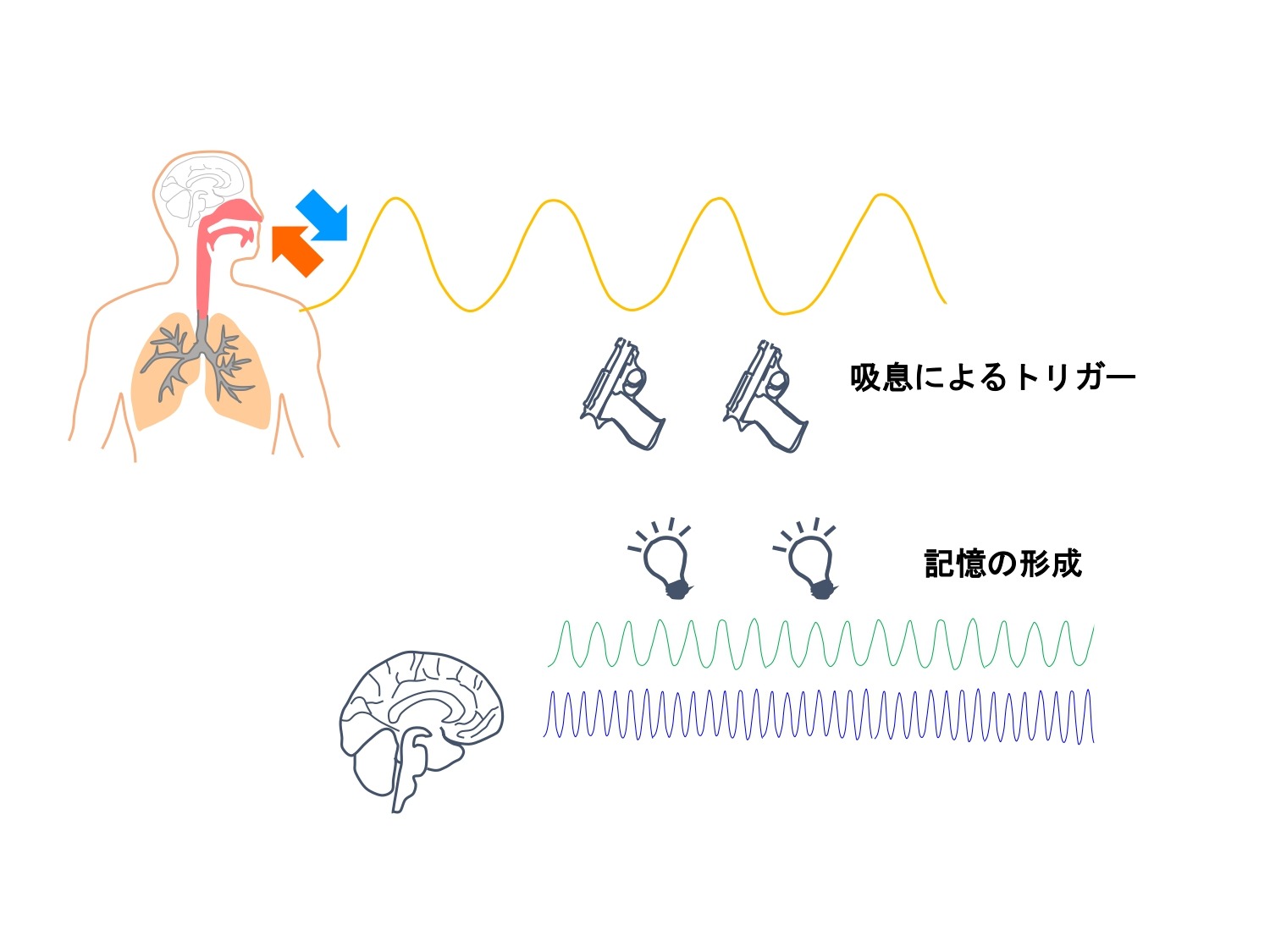About the Corporation
Breathing patterns found to both improve and worsen memory
A research group led by Assistant Professor Nozomi Nakamura of the Department Physiology and Biomechanics, Faculty of Medicine, Hyogo Medical University College School of Medicine (Location: Nishinomiya, Hyogo Prefecture; President: Keiichiro Suzuki), in a joint study with the National Institute for Physiology Sciences, National Institutes of Natural Sciences, has discovered that manipulating the respiratory center to change breathing patterns can strengthen memory, impede memory formation and result in a decline in memory, or even result in memories being created in an incorrect form.
*A paper on the results of this research was published in the online version of Nature Communications, a sister journal of the international academic journal Nature, at 18:00 on Thursday, July 27, 2023 (10:00 on Thursday, July 27, UK time). Co-authors include Professor Furue Hidemasa and Professor Oshiku Yoshitaka of Hyogo Medical University College of Medicine, and Associate Professor Kobayashi Kenta of the National Institute Physiology.
Research Summary
Our research group has previously discovered that improper breathing is one of the causes of cognitive decline. In this study, we further investigated whether freely manipulating breathing could affect memory. We conducted experiments using special genetically modified mice and a technique called Department of Genetics to freely manipulate the breathing of mice. The results showed the surprising result that stopping breathing at the moment the mice were trying to memorize something led to a decline in memory. Furthermore, this was also evident at the level of hippocampal neuron activity. We also found that changing the frequency and pattern of breathing could both improve and worsen memory.
This suggests that respiratory activity originating from the respiratory center in the brainstem (pre-Bötzinger complex) acts on the brain when awake, not only consolidating information processing related to memory and thought into certain units, but also acts as a ``trigger (start button)'' that creates new units of information.
In the future, we hope to clarify the brain mechanisms that demonstrate the importance of the interaction between breathing and cognitive function, and since breathing techniques have the effect of reducing stress, we would like to apply them to the prevention and treatment of mental illnesses such as depression.

Image: Respiratory activity (especially inhalation) acts as a trigger (start button) for memory formation
Research Background
Breathing is an essential activity for maintaining life, but it is dually controlled, being both unconsciously and consciously. Although the details of the role of breathing in the awake state are not yet clear, recent research suggests that breathing plays an important role in the state of the brain while performing tasks (called the online state of the brain).
Our research group has previously shown that when human breathing, particularly the moment of inhalation, occurs while a task is being performed, it leads to a decline in brain activity that controls concentration and attention, as well as a decline in memory (Nakamura et al., 2018, 2022). This suggests that the moment of inhalation is involved in resetting the brain's information processing, and if it occurs while a task is being performed, information processing may not work properly. In this study, we used mice to investigate whether directly controlling respiratory activity would result in changes to memory formation itself, which is directly related to memory, and whether memory could be freely manipulated.
Research Methods and Results
Our research group first used special genetically modified mice to conduct experiments to see if we could stop breathing for a few seconds. Using a technique called optogenetics, we found that we could forcibly control breathing by shining light on the respiratory center in the medulla oblongata of genetically modified mice. Next, we performed a memory task on the mice, and had them stop breathing at the moment they memorized something. Surprisingly, not only did memory performance decline, but changes were also observed in the activity of hippocampal neurons, which serves as the neural basis for memory. Furthermore, randomizing the breathing periodicity while leaving the breathing frequency largely unchanged resulted in improved memory. On the other hand, forcibly halving the breathing frequency revealed that memories were formed in an incorrect form.
This suggests that breathing acts as a "trigger" for forming memories, and that memories cannot be formed without this trigger. Furthermore, it was suggested that if breathing rhythm and timing are not appropriate, it may be difficult to organize certain units, such as memories and thoughts, which may result in a decline in memory.
Source of research funds etc.
・Hyogo Innovative Challenge project (Co-research leader Nozomi Nakamura)
・Takeda Science Foundation (Representative: Nozomi Nakamura)
・Grant-in-Aid for Scientific Research (18K06533, 22K07335 Representative Nozomi Nakamura)
Impact of this research result on society (significance of this research result)
The results of this research demonstrate that breathing plays an important role in cognitive function, and it is also thought to be involved in emotion (emotional responses), another higher-level central function, and mental health in daily life. In the future, it is expected that clarifying the effects of breathing on stress relief and mental illness prevention will contribute to improving the quality of life (QOL) of all people.
Medical journals
Publication information
・Thesis title
"Hippocampal ensemble dynamics and memory performance are modulated by respiration during encoding"
·author
Nozomu Nakamura (*1), Hidemasa Furue (*2), Kenta Kobayashi (*3), Hitoshi Koshihisa (*1)
*1 Department of Physiology and Biophysics, School of Medicine Hyogo Medical University College of Medicine
*2 Department of Physiology and Neurophysiology, Hyogo Medical University School of Medicine
*3 Viral Vector Development Laboratory, National Institute Physiology, National Institutes of Natural Sciences
Inquiries regarding this release
Hyogo Medical University Public Relations Division
TEL: 0798-45-6655 (direct)
FAX: 0798-45-6219
Email: kouhou@hyo-med.ac.jp